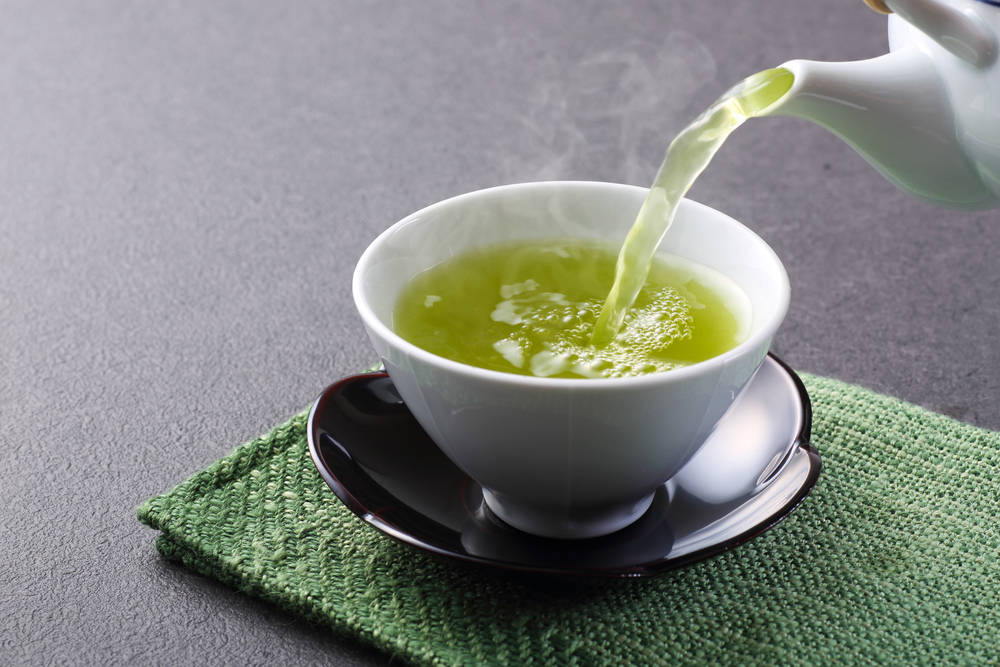Jasmine tea is a popular tea variety that has been enjoyed for centuries. It is a type of scented tea that is made by blending tea leaves with the aroma of jasmine petals. Jasmine tea is known for its unique flavor and aroma, which is why it has become a popular choice for tea lovers all around the world.
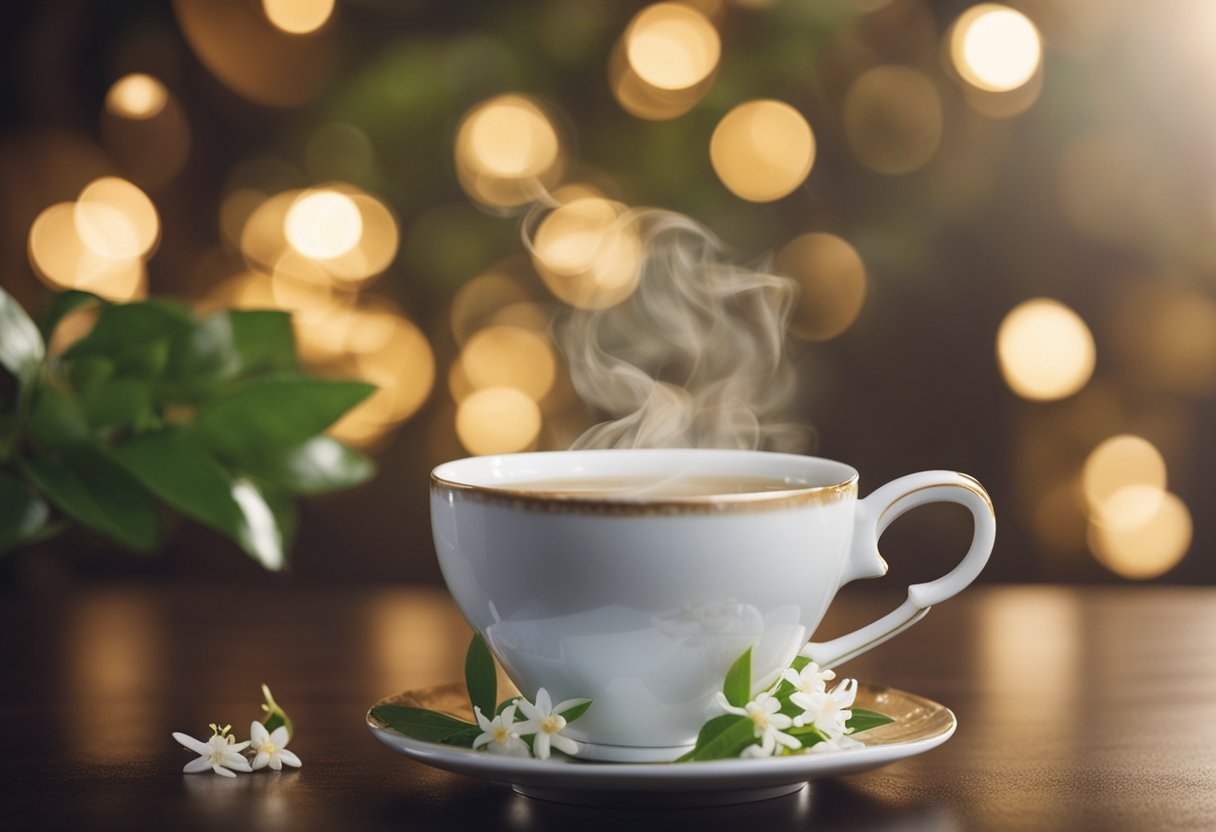
The flavor profile of jasmine tea is complex and unique. It has a floral taste and aroma that is both sweet and slightly bitter.
The base of jasmine tea can be made with different types of tea, such as green tea, white tea, or oolong tea, which can affect the flavor of the tea. The scenting process and brewing method can also impact the flavor of jasmine tea.
Key Takeaways
- Jasmine tea has a floral taste and aroma that is both sweet and slightly bitter.
- The base of jasmine tea can be made with different types of tea, such as green tea, white tea, or oolong tea, which can affect the flavor of the tea.
- The scenting process and brewing method can also impact the flavor of jasmine tea.
Understanding Jasmine Tea
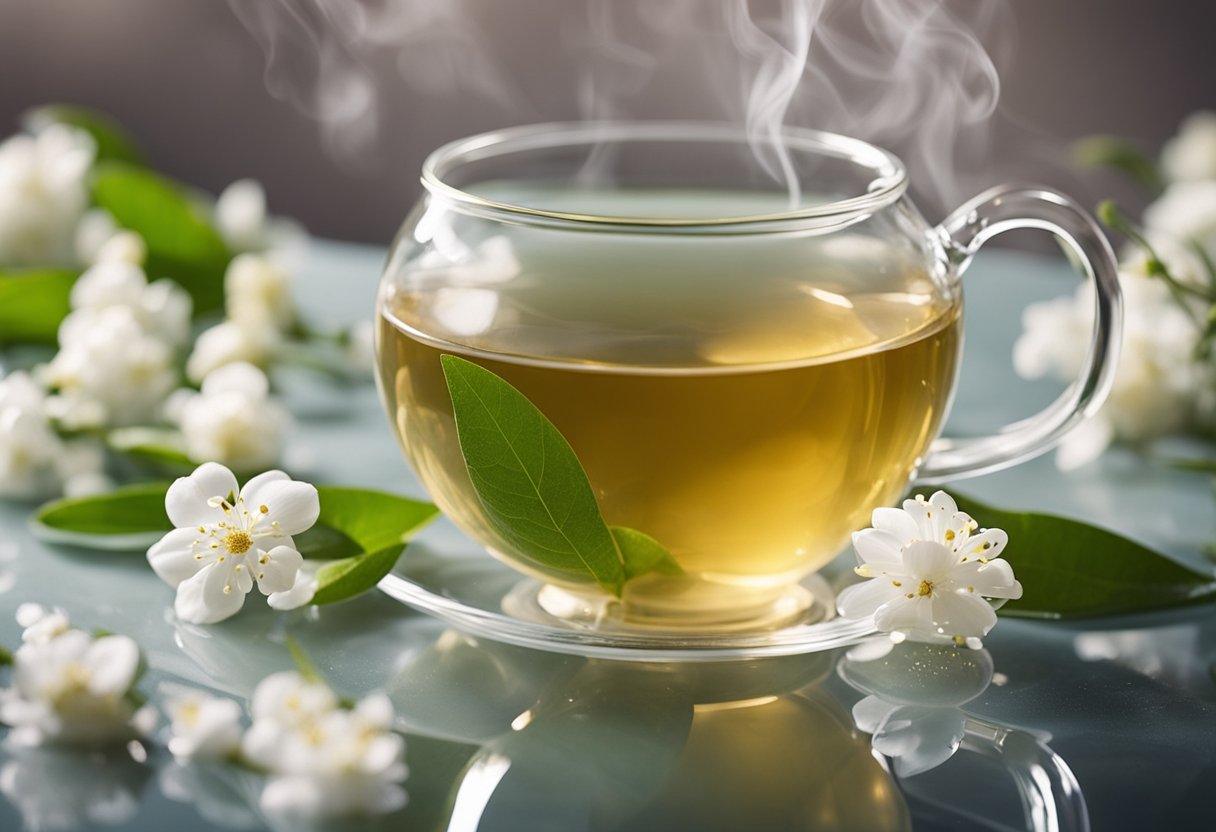
Jasmine tea is a scented tea that originated in China around the fifth century. It is made by infusing tea leaves with jasmine flowers, which impart a subtle sweetness and a light, refreshing flavor. Jasmine tea can be made with various types of tea bases, including green, black, white, and oolong tea.
The base tea used to make jasmine tea is often referred to as the “tea base.” True teas, such as green tea, black tea, white tea, and oolong tea, are all made from the leaves of the camellia sinensis plant. Jasmine tea can be made with any of these true teas as the base, depending on personal preference.
Jasmine flowers used to make jasmine tea typically come from two species of jasmine plants: jasminum officinale and jasminum sambac.
Jasminum officinale, also known as common jasmine, is native to Iran and is often used to make jasmine tea in China. Jasminum sambac, also known as sambac or sampaguita, is native to Southeast Asia and is often used to make jasmine tea in India.
Jasmine tea is often described as having a delicate floral aroma and a sweet, slightly astringent taste. The taste of jasmine tea can vary depending on the type of tea used as the base and the quality of the jasmine flowers used to scent the tea.
Jasmine green tea is the most common type of jasmine tea, but jasmine white tea, jasmine black tea, and jasmine oolong tea are also popular.
Overall, jasmine tea is a great choice for those who enjoy a light, floral tea with a subtle sweetness. It can be enjoyed hot or cold and is often served with meals or as a refreshing afternoon drink.
Flavor Profile of Jasmine Tea
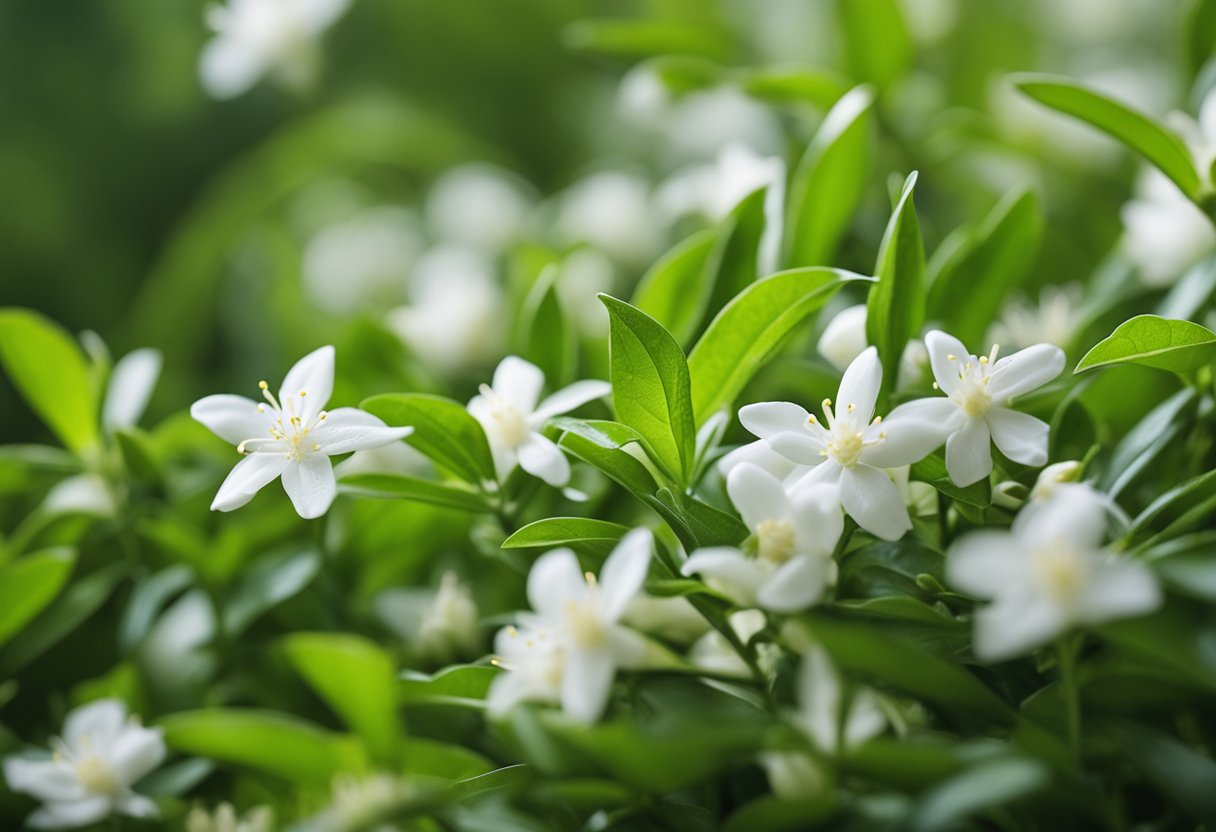
I have always been fascinated by the delicate and refreshing taste of jasmine tea. Made by infusing tea leaves with the aroma of jasmine flowers, jasmine tea has a unique flavor profile that is both sweet and floral.
The flavor of jasmine tea is highlighted by the floral aroma of the jasmine flowers. It is not too intense or strong, but rather soft and delicate. The sweetness of the tea helps to bring out the floral flavor notes, making it a perfect balance of flavors.
While jasmine tea has a natural tea bitterness, it is not overwhelming. The bitterness is subtle and adds depth to the tea’s flavor profile. It is a pleasant bitterness that is not too strong or overpowering.
Jasmine tea is known for its flowery taste, which is why it is a popular choice for those who enjoy floral teas. The tea has a refreshing taste that is perfect for a hot summer day. It is not too rich or heavy, making it a great choice for those who prefer lighter teas.
Overall, jasmine tea has a unique flavor profile that is both sweet and floral. It is a delicate tea with a subtle bitterness that adds depth to its flavor. The tea has a refreshing taste that is perfect for a hot summer day.
The Aroma of Jasmine Tea
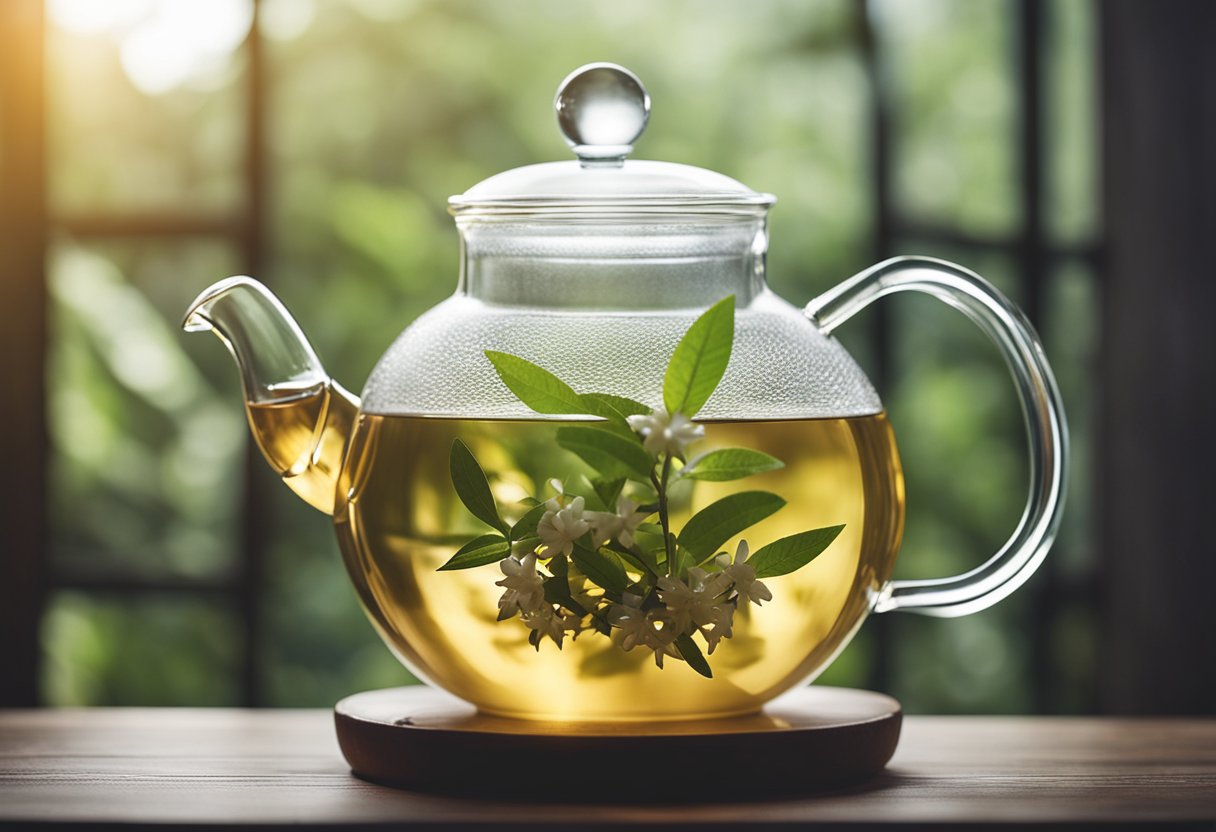
As a tea lover, I find the aroma of jasmine tea to be one of the most alluring scents in the world of tea. The fragrance of jasmine tea is sweet, floral, and delicate. The scent is so captivating that it can make you feel relaxed and refreshed even before you take a sip.
Jasmine tea is a scented tea that is made by infusing tea leaves with the aroma of jasmine flowers. The scenting process involves layering fresh jasmine flowers between layers of tea leaves. The tea leaves absorb the fragrance of the jasmine flowers, resulting in a tea that has a delicate floral aroma.
The scent of jasmine tea is so fragrant that it is often compared to perfume. However, unlike perfume, the scent of jasmine tea is not overpowering and does not linger for too long. Instead, it is a subtle and pleasant aroma that adds to the overall experience of drinking the tea.
When brewing jasmine tea, the aroma becomes even more pronounced. The scent of the tea fills the room, creating a relaxing and calming atmosphere. The fragrance of jasmine tea is so alluring that it can even help to alleviate stress and anxiety.
In conclusion, the aroma of jasmine tea is sweet, floral, and delicate. It is a result of the scenting process that involves layering fresh jasmine flowers between layers of tea leaves.
The scent of jasmine tea is not overpowering and does not linger for too long. Instead, it is a subtle and pleasant aroma that adds to the overall experience of drinking the tea.
Brewing Jasmine Tea
As an avid tea drinker, I love brewing jasmine tea for its delicate floral aroma and taste. Here are some tips on how to make a perfect cup of jasmine tea.
Temperature
When brewing jasmine tea, it’s important to use the right water temperature. Jasmine tea is typically made with green tea, which requires a lower temperature than black tea. I recommend using water that is around 80°C (176°F) to avoid over-brewing and bitterness.
Steeping Time
The steeping time for jasmine tea is also crucial. I usually steep my jasmine tea for 2-3 minutes, depending on the desired strength. Steeping for too long can result in a bitter taste, so it’s best to keep an eye on the time.
Brewing
To brew jasmine tea, I use loose leaf tea in a tea infuser or strainer. I add the tea to a cup and pour hot water over it. I then let it steep for the desired time before removing the tea leaves.
Some people prefer to add the tea leaves directly to the water, but I find that using an infuser or strainer helps to prevent any leaves from ending up in my cup.
Boiling Water
It’s important to avoid using boiling water when brewing jasmine tea. Boiling water can scorch the tea leaves and result in a bitter taste. Instead, I recommend heating the water to the desired temperature and then letting it cool for a minute or two before pouring it over the tea leaves.
In conclusion, brewing jasmine tea requires attention to detail and a delicate touch. By using the right water temperature, steeping time, and brewing method, you can enjoy a delicious cup of jasmine tea with a delicate floral taste and aroma.
Different Types of Jasmine Tea
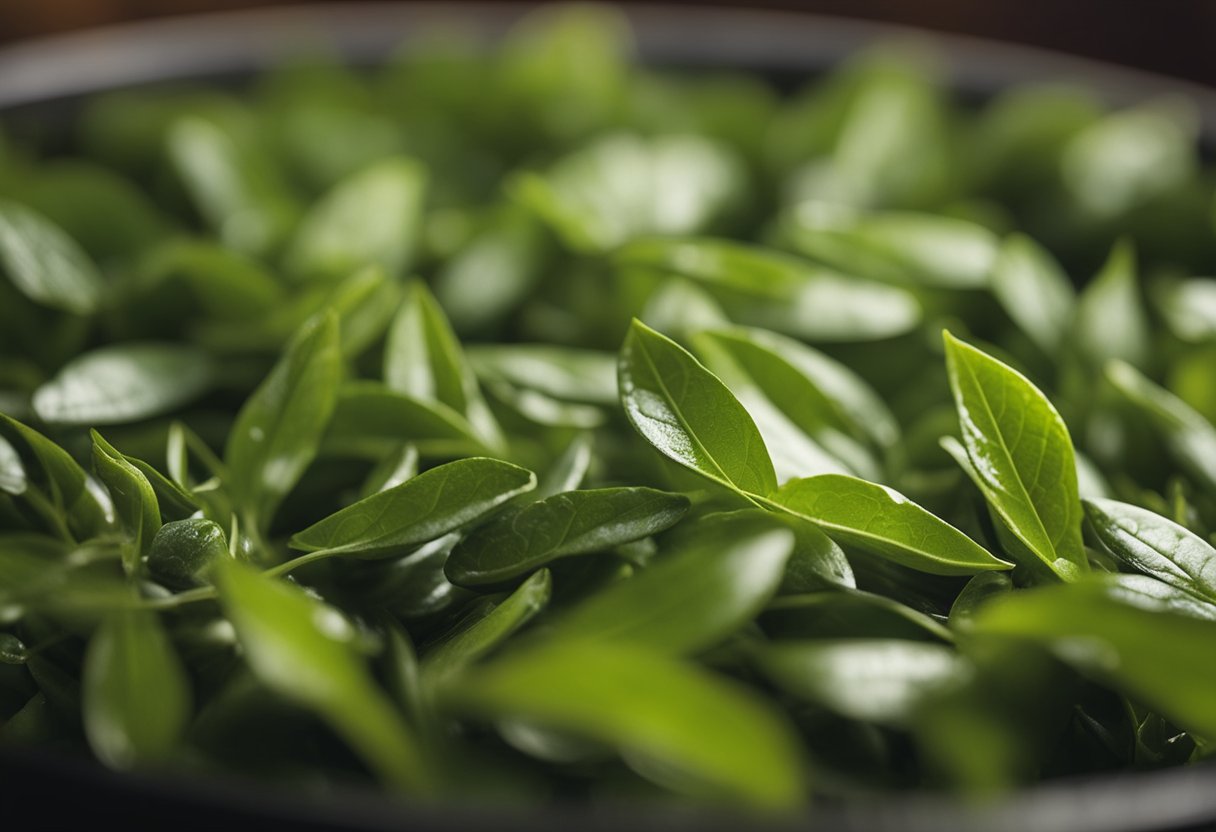
There are various types of jasmine tea available, each with a unique taste and aroma profile. Here is a brief overview of some of the most popular types of jasmine tea:
Jasmine Green Tea
Jasmine green tea is the most common type of jasmine tea. It is made by scenting green tea leaves with jasmine flowers. The tea has a delicate, floral aroma and a slightly sweet taste. The flavor of jasmine green tea can vary depending on the quality of the tea leaves and the amount of jasmine flowers used.
Jasmine Pearl Tea
Jasmine pearl tea, also known as jasmine pearls, is a type of jasmine tea made by rolling green tea leaves into small balls or pearls.
The pearls are then scented with jasmine flowers. This type of tea has a stronger jasmine flavor and aroma than jasmine green tea. The tea also has a slightly nutty taste due to the roasting of the tea leaves.
Dragon Pearl Jasmine Tea
Dragon pearl jasmine tea is a type of jasmine tea that is similar to jasmine pearl tea. However, this tea is made using oolong tea leaves instead of green tea leaves. The tea has a rich, floral aroma and a smooth, slightly sweet taste. The tea leaves are rolled into small balls and scented with jasmine flowers.
Other Types of Jasmine Tea
There are other types of jasmine tea available, including white jasmine tea and black jasmine tea. White jasmine tea is made using white tea leaves and has a delicate, sweet flavor. Black jasmine tea is made using black tea leaves and has a stronger, more robust flavor.
Overall, the taste of jasmine tea can vary depending on the type of tea leaves used, the quality of the tea, and the amount of jasmine flowers used. However, all types of jasmine tea have a delicate, floral aroma and a slightly sweet taste that is sure to please any tea lover.
Health Benefits of Jasmine Tea
I am excited to share with you some of the health benefits of jasmine tea. Jasmine tea is not only a delicious beverage, but it also has numerous health benefits.
Antioxidants
Jasmine tea is loaded with powerful plant-based compounds known as polyphenols. These act as antioxidants in the body and protect your cells against free radical damage.
Antioxidants have been linked to a variety of health benefits, including reducing the risk of chronic diseases such as cancer and heart disease.
Caffeine and L-Theanine
Jasmine tea contains caffeine, which can help to increase alertness and focus. However, it also contains the amino acid L-theanine, which has a calming effect on the body. This combination of caffeine and L-theanine can help to improve mood, reduce stress, and promote relaxation.
Digestion
Jasmine tea has been shown to have digestive benefits. It can help to soothe the digestive tract and reduce inflammation. Additionally, it can help to improve the metabolism and promote healthy digestion.
Skin Health
Jasmine tea is also great for promoting healthy skin. The antioxidants in jasmine tea help to protect the skin from damage caused by free radicals. Additionally, jasmine tea has anti-inflammatory properties that can help to reduce redness and irritation in the skin.
Other Health Benefits
Jasmine tea has been linked to numerous other health benefits, including:
- Improving cardiovascular health
- Reducing the risk of certain cancers
- Boosting the immune system
- Promoting healthy bones
- Improving cognitive function
Overall, jasmine tea is an excellent choice for those looking to improve their health and wellbeing. With its delicious taste and numerous health benefits, it’s no wonder that jasmine tea is so popular around the world.
Sweetening and Serving Jasmine Tea
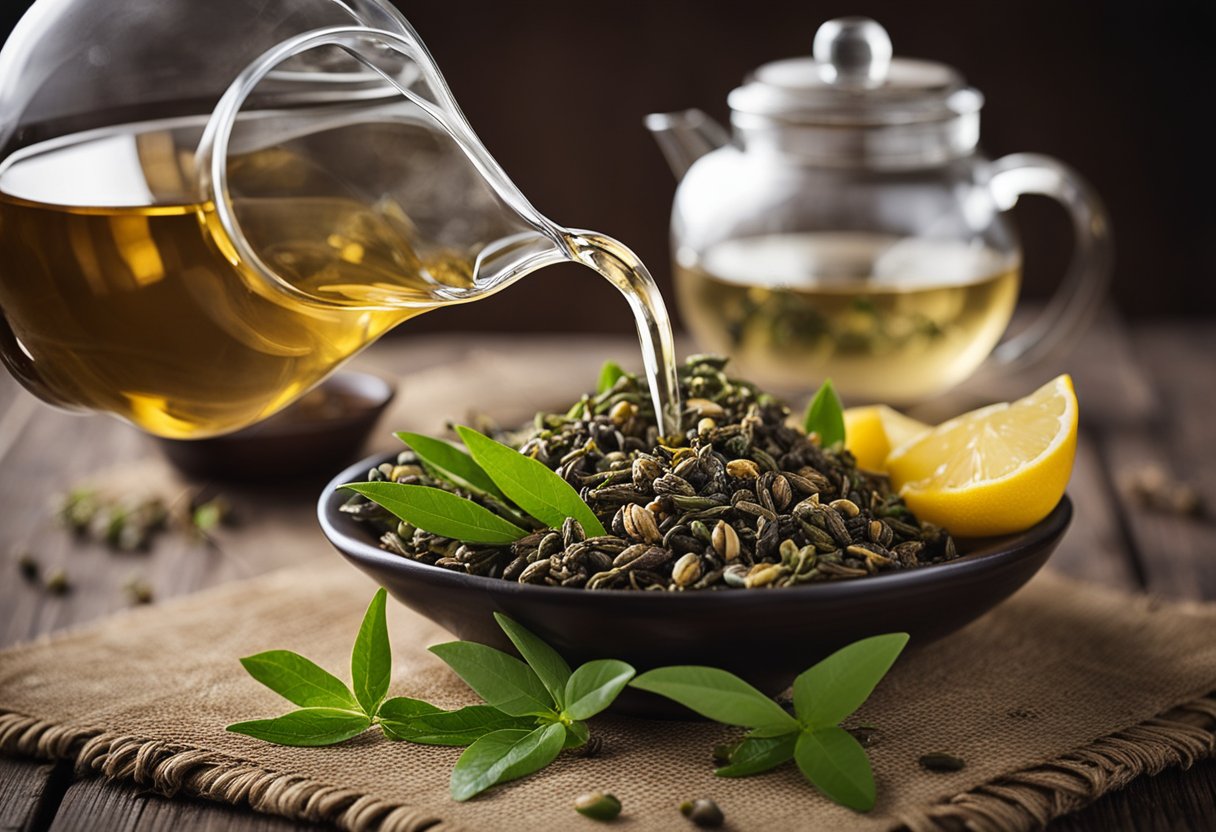
Jasmine tea has a naturally sweet and floral taste that is often enjoyed without any additional sweeteners. However, if you prefer your tea to be sweeter, there are several options available.
One of the most popular ways to sweeten jasmine tea is by adding honey. Honey not only adds sweetness but also enhances the floral notes of the tea. When adding honey, start with a small amount and gradually add more until you reach your desired level of sweetness.
Another option is to use a sweetener such as sugar or stevia. Keep in mind that adding too much sugar can overpower the delicate flavor of the tea. It is recommended to start with a small amount and adjust to taste.
Jasmine tea can be enjoyed hot or cold, depending on your preference. To serve hot, simply steep the tea leaves in hot water for 3-5 minutes, strain, and serve. To serve cold, steep the tea leaves in hot water and then chill in the refrigerator for several hours. Serve over ice with a slice of lemon for a refreshing summer drink.
When serving jasmine tea, it is important to use high-quality tea leaves and fresh jasmine flowers for the best flavor. Opt for loose-leaf tea instead of tea bags for a more authentic taste. Additionally, using a teapot or infuser can help to ensure that the tea is brewed evenly and to the desired strength.
Overall, sweetening and serving jasmine tea is a matter of personal preference. Experiment with different sweeteners and serving methods to find the perfect cup of jasmine tea for you.
Quality and Selection of Jasmine Tea
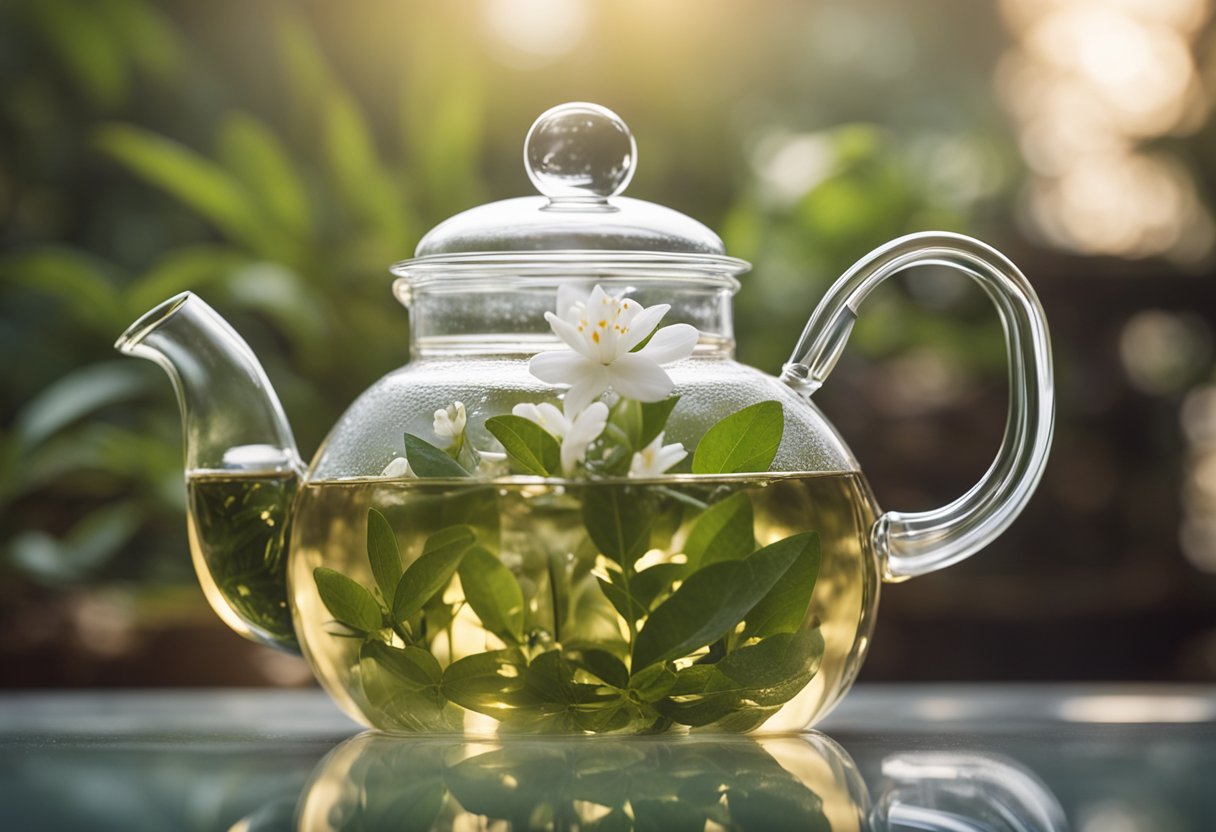
As a tea lover, I always look for the best quality and selection when it comes to choosing my tea. Jasmine tea is no exception. The quality of jasmine tea is determined by several factors, including the freshness of the jasmine flowers, the tea base used (green or black), and the tea grade.
Freshness is key when it comes to jasmine tea. The fresher the jasmine flowers, the better the flavor and aroma of the tea. Loose-leaf jasmine tea is usually fresher than tea bags, as the leaves and flowers are not crushed and can retain their delicate flavor and aroma.
The tea base used in jasmine tea can be either green or black. Green tea is the most common base used in jasmine tea, as it has a lighter flavor that complements the floral notes of the jasmine flowers. Black tea, on the other hand, has a stronger flavor that can overpower the delicate flavor of the jasmine flowers.
Loose-leaf teas are generally considered to be of higher quality than tea bags. Loose-leaf jasmine tea allows the leaves and flowers to expand fully, releasing their full flavor and aroma.
Tea bags, on the other hand, can limit the expansion of the leaves and flowers, resulting in a weaker flavor and aroma.
Tea grade is another factor that can affect the quality of jasmine tea. Tea grades are determined by the amount of oxidation the tea leaves undergo.
The higher the grade, the less oxidized the leaves are. Jasmine tea is typically made with green tea, which is unoxidized. However, some jasmine teas may use partially oxidized leaves, resulting in a slightly different flavor profile.
In conclusion, when it comes to selecting jasmine tea, freshness, tea base, loose-leaf tea, and tea grade are all important factors to consider. By choosing high-quality jasmine tea, you can enjoy the delicate and fragrant flavor of this beloved tea.
The History and Origin of Jasmine Tea
Jasmine tea is a type of tea that has been enjoyed for centuries, with a rich history and a unique flavor profile. As a tea lover, I have always been fascinated by the history and origin of this fragrant tea.
Jasmine tea originated in China, specifically in the Fujian province, where it was first produced over 1,000 years ago.
The scenting process of jasmine tea began during the South-Song Dynasty in China and was further developed under the Ming Dynasty. By the early 20th century, the blend was popular enough to become a fast-moving trade item.
The jasmine plant is believed to have been introduced into China from eastern South Asia via India during the Han dynasty (206 BC to 220 AD) and was being used to scent tea around the fifth century.
The tea was initially consumed for its medicinal properties, but it soon became popular for its unique flavor and aroma.
Jasmine tea is made by infusing green tea or black tea with jasmine flowers. The tea base can affect the taste of the tea, with green tea providing a more delicate flavor and black tea providing a stronger, more robust flavor.
The jasmine flowers used in the tea are typically picked in the early morning when the flowers are still closed, and then stored in a cool place until evening when the flowers open and release their fragrance. The flowers are then mixed with the tea leaves and left to infuse for several hours.
Jasmine tea has a delicate and soft taste, with a sweet and floral aroma that is refreshing and soothing. The tea has a natural bitterness that is not overpowering, which is balanced out by the sweetness of the jasmine flowers.
This unique combination makes for a light, delicate taste that can be enjoyed either warm or cold.
In conclusion, the history and origin of jasmine tea is a fascinating story that spans centuries and continents. From its origins in China to its popularity in the West today, jasmine tea has a rich history and a unique flavor profile that continues to captivate tea lovers around the world.
Frequently Asked Questions
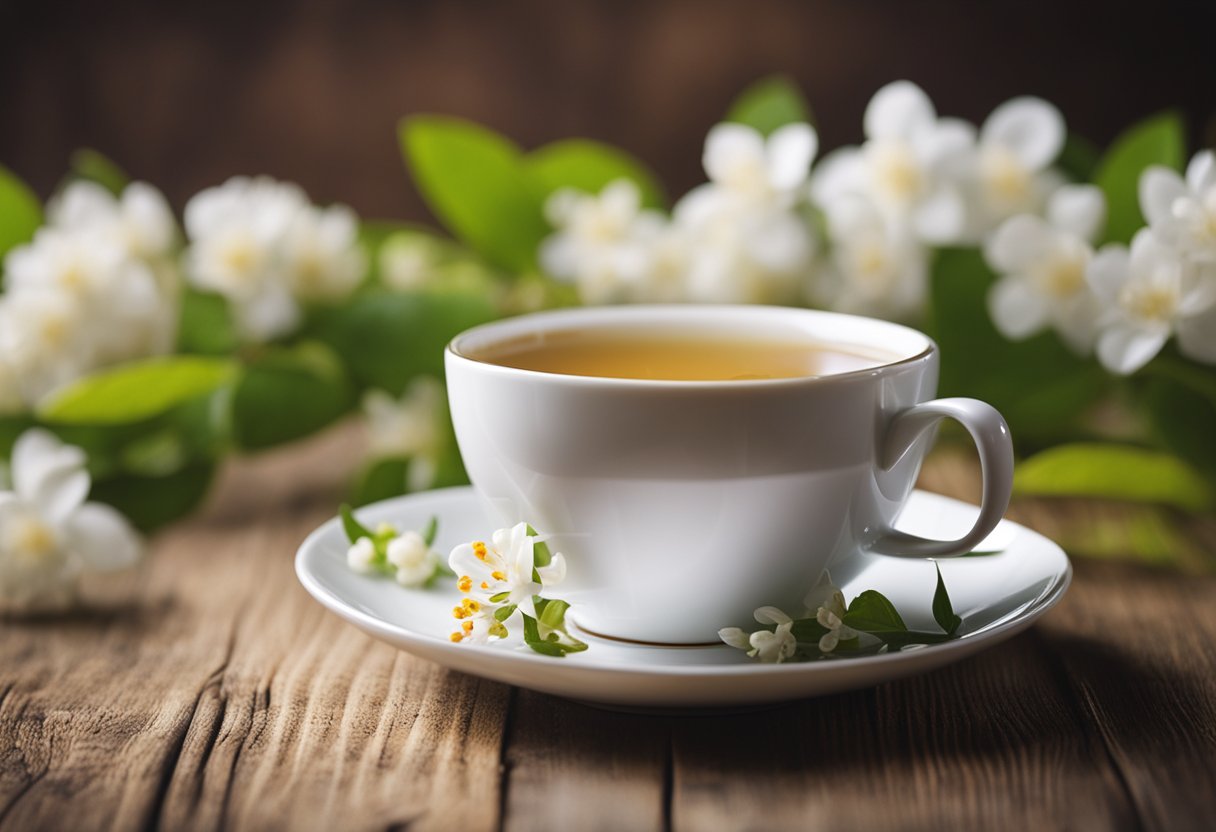
What are the benefits and side effects of drinking jasmine green tea?
Jasmine green tea is known to have several health benefits, including reducing the risk of heart disease, improving brain function, and aiding in weight loss.
However, it is important to note that consuming too much tea, including jasmine green tea, can lead to side effects such as insomnia, headaches, and digestive issues. It is recommended to consume jasmine green tea in moderation.
How does the taste of jasmine tea compare to other teas?
Jasmine tea has a unique taste that is different from other teas. It has a delicate floral aroma and a subtle sweet taste that is not overpowering. Compared to other green teas, jasmine tea is milder and less bitter. When compared to black teas, jasmine tea is lighter and less astringent.
What is the flavor profile of jasmine tea?
Jasmine tea has a delicate and floral flavor profile. The tea has a natural sweetness that is not overpowering. The floral notes of the jasmine flowers complement the base tea, creating a well-balanced taste. The tea has a smooth and refreshing finish, making it a popular choice among tea lovers.
What are the health benefits of drinking green tea with jasmine?
Green tea with jasmine is known to have several health benefits. The combination of green tea and jasmine flowers helps to reduce stress, improve digestion, and boost the immune system. The antioxidants in green tea help to reduce the risk of chronic diseases such as cancer and heart disease.
What are the differences between jasmine green tea and regular green tea?
The main difference between jasmine green tea and regular green tea is the addition of jasmine flowers. Jasmine green tea is made by infusing green tea leaves with jasmine flowers, while regular green tea is made from green tea leaves only.
Jasmine green tea has a delicate floral aroma and a subtle sweet taste, while regular green tea has a grassy and slightly bitter taste.
What are some popular brands of jasmine green tea?
Some popular brands of jasmine green tea include Harney & Sons, Twinings, and Bigelow. These brands offer high-quality jasmine green tea that is made from premium tea leaves and jasmine flowers. Additionally, many tea shops and specialty stores offer their own blends of jasmine green tea that are worth trying.


